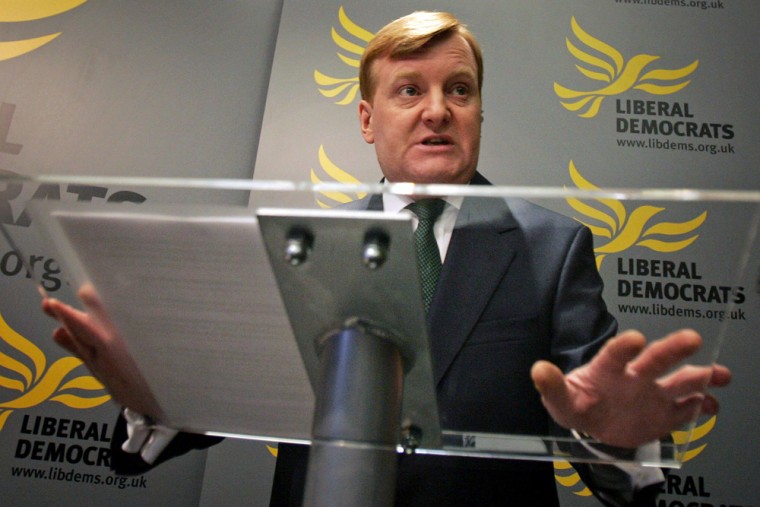The leader of Britain’s opposition Liberal Democrats resigned his post under pressure from the party Saturday, days after he acknowledged battling a drinking problem.
Charles Kennedy initially resisted stepping down despite calls from nearly half of the party’s lawmakers for him to quit, saying the Liberal Democrats’ rank and file still backed him.
He changed course Saturday, saying he was resigning immediately and would not run in the leadership elections he announced Thursday.
“In all of this, the interests of our party have got to come first, that’s where my personal, my political and my constitutional duty lies,” Kennedy said in a news conference at the Liberal Democrats’ headquarters in London.
Kennedy’s relaxed, amiable style and his opposition to the Iraq war had made him a popular and respected politician. The Liberal Democrats, Britain’s third largest party, were the only one of the three main parties to oppose the war, which was deeply unpopular among Britons.
But dissatisfaction with Kennedy’s leadership had been simmering for months and increased sharply after the Conservatives boosted their fortunes by electing a charismatic young leader last month.
Kennedy, 46, acknowledged for the first time Thursday that he had sought medical help for his drinking and called a leadership election in which he initially said he planned to run.
Many of the left-leaning party’s 62 lawmakers expressed worry at the prospect of a divisive contest and urged him to step down soon and bring the party’s crisis to a quick resolution.
Earlier denials fueled contempt
Some said his drinking had compromised his political skills and expressed anger at his years of denying he had a problem.
Others felt he lacked the charisma and drive to challenge Prime Minister Tony Blair.
Party colleagues said stepping down was the right move.
“Charles Kennedy has taken a courageous decision and the right one for himself and the party,” said Paddy Ashdown, Kennedy’s predecessor as leader.
Rumors about Kennedy’s alcohol abuse had been widespread for years.
He was panned by the British media during last year’s election campaign after he appeared confused about his party’s taxation policies during a news conference. He blamed his bleary-eyed performance on lack of sleep after the recent birth of his son.
Kennedy’s deputy Menzies Campbell, 64, took over as interim leader and quickly announced his intention to run in the leadership contest. Popular and well-respected, he could emerge as a consensus candidate in a party eager to avoid further division.
Kennedy entered Parliament at 23, winning a seat representing his native Scottish highlands and islands. He became party leader in 1999.
Kennedy has been the most successful Liberal leader in decades, steering the party through an election last year that boosted its tally of lawmakers in the 646-seat House of Commons from 55 to 62.
His acknowledgment of alcohol abuse came after a television network contacted him with detailed allegations about his drinking.
